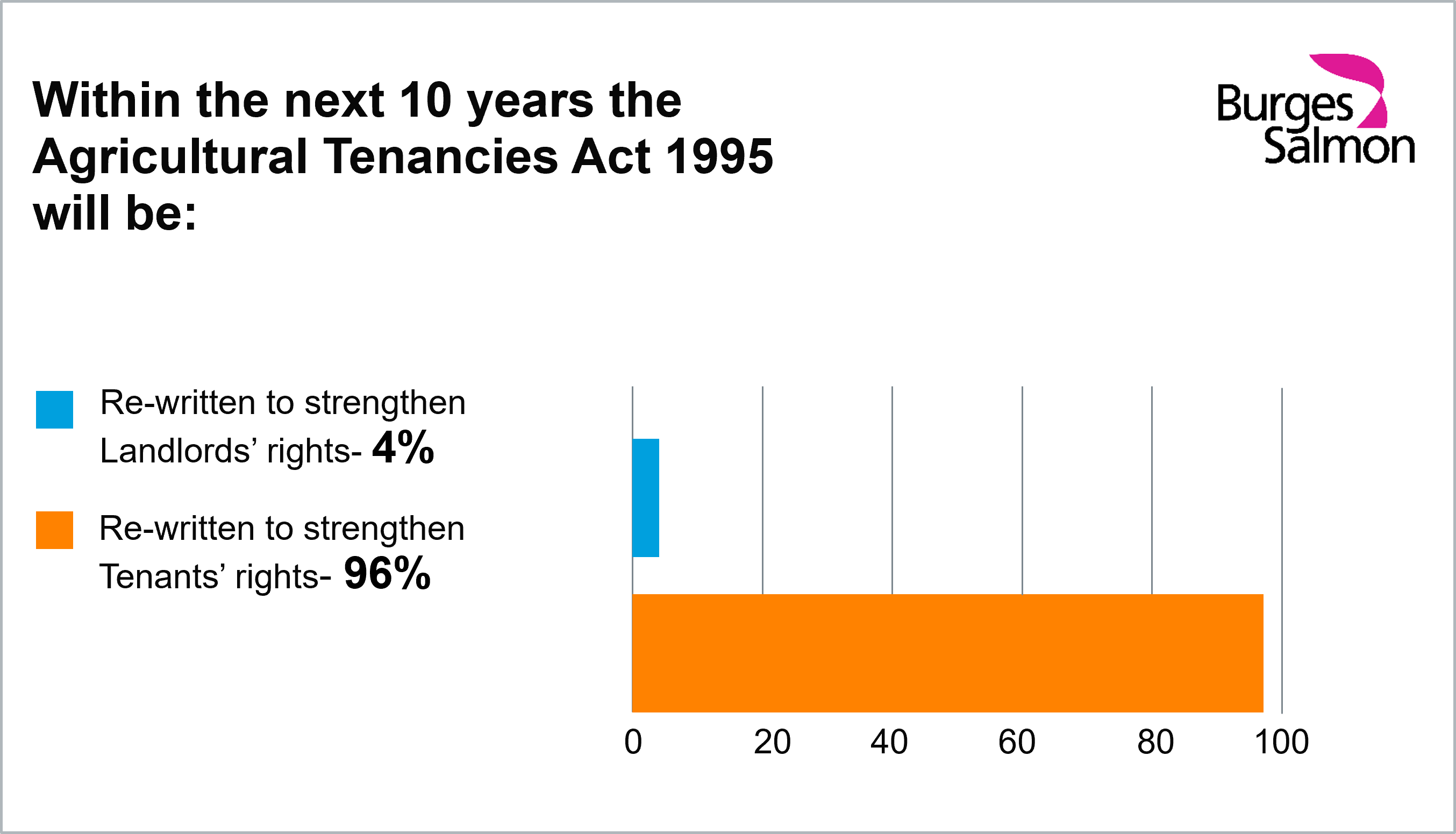We were delighted to be speaking at An Evening with Burges Salmon on 9 October 2023, organised by Surveyors RECAP, a non-profit organisation expanding the knowledge of rural professions (www.suveyorsrecap.co.uk), and hosted at a very welcoming Harper Adams University.
We took the opportunity to poll the attendees, all of them rural professionals with varying backgrounds of practice, experience and firms.
The polling has produced some interesting results, giving a snapshot as to how a group of rural professionals thought about particular questions put to them, and over three episodes we’ll share the polling, with some thoughts. We hope you find them of interest.
Part 3: The Money
The financial environment for those owning and using land is always a significant driver of action. What may be coming in the financial environment influences how people deal with their land now, especially if a change of government is thought to be likely. We put a series of questions touching on this to our audience.
We started with a binary question to establish whether the audience thought a change of government was likely:

A clear majority were expecting a Labour victory. Those polled were asked to put aside personal voting preferences, but give their view on the expected outcome of a general election. Given the perception of a coming change in government, no doubt considerable thought is being given to how that might impact the rural sector.
One of the issues that always comes up first in discussions about rural land and finance is the continued availability of Agricultural Property Relief, as a relief against Inheritance Tax being charged on agricultural land. We asked about expectations for changes to APR:

A comfortable majority anticipated some changes to the APR regime, with the potential for there to be a greater focus on “real” (or perhaps “active”) farmers who own land, rather than just on those owning land.
APR is often thought to be under attack, but persists as an IHT relief, possibly because it is not a significant enough relief to shift the government finances by itself, and possibly because changing it would create some very real practical issues relating to the transmission of farms through the generations. For further thoughts on this perennial topic, see What if the next Government abolishes APR for landlords?, Tom Hewitt (burges-salmon.com).
For our respondents, note the very limited proportion who though that APR would be abolished entirely.
The potential for change was reflected to a far stronger degree when it came to agricultural tenancies:

The Agricultural Tenancies Act 1995 governs the terms of Farm Business Tenancies. Almost everyone polled anticipated some re-writing for the ATA 1995 within the next 10 years that would strengthen tenants’ rights. That may bring its own challenges for the rural sector, as that view being widespread could impact how landowners chose to let their land at the moment.
And we would have been remiss not to ask a room full of rural professionals for their view of agricultural land values in the short term:

The outcome was a relatively conservative, or realistic, approach to the likely position with land values over the next three years, perhaps recognising that changes on the supply and demand side may result in a broad equilibrium.
We hope you found these articles of interest. For us, they help to give insight to how people are thinking at a particular point in time, and we are grateful to those polled for sharing their opinions.
The financial environment for those owning and using land is always a significant driver of action
 unknownx500
unknownx500










